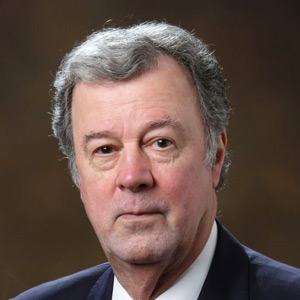Last Saturday I made a first-ever visit to the down town Dallas Police Department to fill out a report. I had never been to a police department before. My only image of one was the police station I had seen on the television series Hill Street Blues.
Unlike the television show, the building I approached was thoroughly modern—constructed of glass and steel. I was impressed.
Also unlike the television show, the building was locked. Locked? Yes locked. The police take off on weekends? Apparently. From what I remember, people walked in and out of the Hill Street Blues police station at any time night or day. It was part of the community. Not in Dallas.
That Saturday morning there was someone behind the locked front door. But he would only talk to me over an intercom. “Come back Monday morning after 8:00,” he ordered. When I did, I observed the interior of the building was as impressive as its exterior. But the mood and demeanor of the personnel was not much different than what I had experienced at the Department of Motor Vehicles or the Social Security administration office or almost any other government agency.
Conservatives have a long tradition of being suspicious about the power of government. But they have tended to make an exception for the police in particular and the criminal justice system in general. It was not that long ago that “support your local police” bumper stickers were popular in some parts of the country.
It’s time to reset.
The shooting of Michael Brown in Ferguson, Mo. was just the first in a disturbing string of widely publicized deaths of black citizens who were stopped by the police or in their custody. Most of what I’ve read about this lately has been written by liberals. But try to put that thought aside and objectively consider what New York Times columnist Charles Blow has to say:
Many local municipalities experience budgetary pressure. Rather than raise taxes or cut services in response, things that are often politically unpalatable, they turn to law enforcement and courts to make up the difference in tickets and fines. Some can also increase the number of finable offenses and stiffen the penalties.
Officers, already disproportionately deployed and arrayed in so-called “high-crime” neighborhoods—invariably poor and minority neighborhoods—are then charged with doing the dirty work. The increase in sheer numbers of interactions creates friction with targeted populations and ups the odds that individual biases will be introduced.
Blow isn’t saying the police are racists. They are probably no more racist than anyone else. The problem is that pressure from City Hall creates a situation that disproportionally affects blacks. As Blow writes:
There is blood on everyone’s hands, including the hands still clutching the tax revenue that those cities needed but refused to solicit, instead shifting the mission of entire police departments “from ‘protect and serve’ to ‘punish and profit,’ ” as Mother Jones magazine recently put it in a fascinating article on this subject.
Is it a coincidence that many of the recent cases involving black people killed by the police began with stops for minor offenses?
And that’s just the first step people encounter when they interact with the criminal justice system. If they are charged with a crime, it gets worse. Writing in the New York Times Magazine, Nick Pinto says that:
[A]t any given time, close to 450,000 people are in pretrial detention in the United States—a figure that includes both those denied bail and those unable to pay the bail that has been set... In New York City, where courts use bail far less than in many jurisdictions, roughly 45,000 people are jailed each year simply because they can’t pay their court-assigned bail. And while the city’s courts set bail much lower than the national average, only one in 10 defendants is able to pay it at arraignment. To put a finer point on it: Even when bail is set comparatively low—at $500 or less, as it is in one-third of nonfelony cases—only 15 percent of defendants are able to come up with the money to avoid jail.
In a post at Slate, Andrew Kahn and Chris Kirk note that:
- Black and Hispanic drivers are far more likely than whites to be stopped and searched by the police.
- Black Americans are more likely to be jailed while awaiting trial.
- Blacks are more likely to be offered a plea deal that avoids trial.
- Blacks are more likely to serve longer sentences for the same offense.
- Blacks are more likely to be disenfranchised because of a felony conviction.
- Blacks are more likely to have their probation revoked.
- Blacks are more likely to be excluded from jury pools.
- Blacks are more likely to have their probation revoked.
None of this means that racism is involved, although it may be.
Conservatives are prone to point out that there is more criminality in the black community. Writing in USA Today, criminology expert James Alan Fox notes that:
[T]he police were not the greatest threat to black citizens and the tranquility of their neighborhoods during the late-80s crime wave. At that time, blacks were only 12% of the U.S. population, yet constituted nearly half of the nation’s homicide victims. Moreover, well over 90% of these black homicide victims were slain by members of their own race. Black lives do indeed matter, but not just when they are taken by officers in blue.
Fair enough. But that can’t excuse a lot of current practices.
Conservatives who become outraged when city governments overstep their powers of eminent domain and seize private property should be even more outraged when the criminal justice system abuses rights instead of protecting them.











